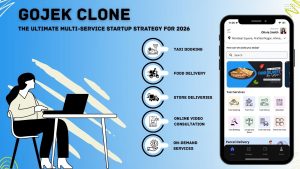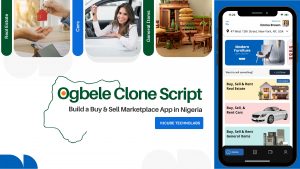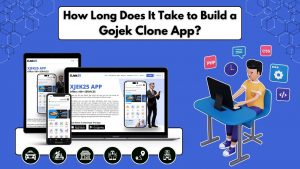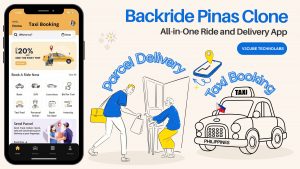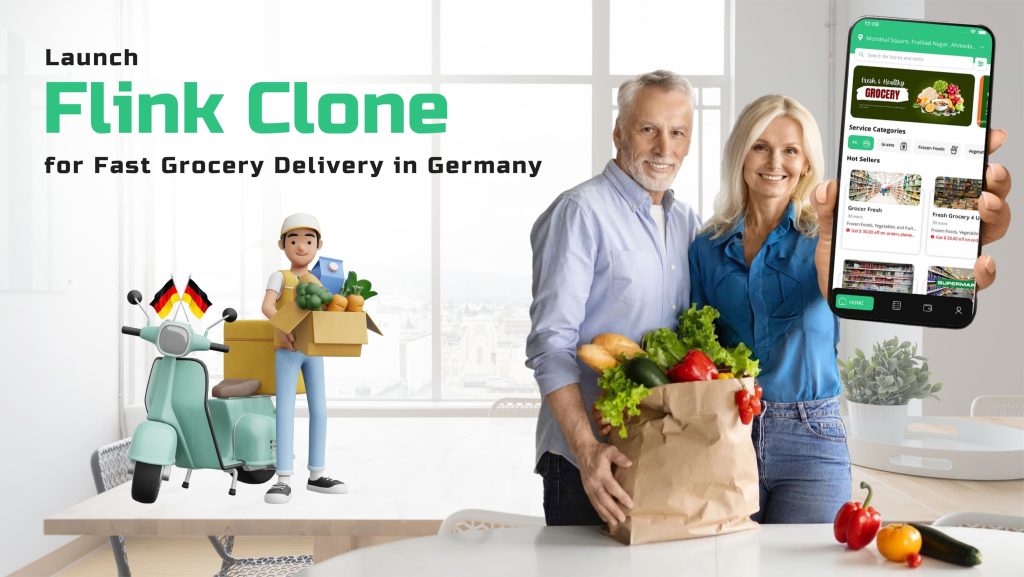
Why are people in Germany switching from shopping for groceries at supermarkets to simply ordering from an on-demand grocery delivery app? Some of the primary reasons include the extreme convenience and ease of shopping from the comfort of their homes or offices. But what is driving this shift?
The answer lies in convenience and variety. People no longer want to spend hours walking down aisles, standing in checkout lines, or hauling heavy bags back home. Instead, they prefer the ease of browsing through a digital catalog from the comfort of their homes or even while at work. A Grocery Delivery App like Flink Clone gives customers an effortless way to get everything they need delivered right to their doorstep.
Beyond convenience, these apps offer something else that supermarkets can’t always match: a wider variety of choices and personalized shopping experiences. And for entrepreneurs and grocery store owners in Germany launching a Flink Clone App opens the door to bigger profits, stronger customer loyalty, and the opportunity to stay relevant in a fast-changing retail environment.
Benefits of Launching Your Flink Clone
Your Will Notice Increase in Business
Every entrepreneur dreams of increasing sales and scaling their business quickly. A grocery delivery app in Germany makes this possible by staying open 24/7, 365 days a year. Unlike a physical store that closes at night or on holidays, your app is always ready to accept orders. With smartphones in almost every hand, customers can order groceries anytime, anywhere, ensuring a steady flow of business.
This constant availability creates unlimited earning potential. Even during late-night hours or unexpected events when customers cannot visit supermarkets, your app becomes their go-to solution. Over time, this reliability builds customer trust and loyalty, directly translating into higher revenues for your business.
Reduce Overhead Costs
Running a physical supermarket involves significant expenses rent, utilities, staffing, and maintenance. A Flink Clone App automates much of the process, reducing the need for a large workforce. Its integrated dashboards give you a real-time view of customer orders, delivery traffic, and inventory.
By streamlining operations, you save both time and money. With fewer overhead costs, your profit margins improve. Plus, automation minimizes human error, ensuring smoother service and happier customers.
Secure Payment Options
German consumers value flexibility and security in payments. By integrating multiple options credit/debit cards, and in-app wallets, makes transactions seamless. Customers feel more comfortable shopping when they can pay using their preferred method.
Secure payment gateways also build credibility. When users trust your app with their financial details, they are more likely to become repeat customers, boosting your long-term profitability.
You can analyze your Consume
One of the most powerful benefits of digital platforms is data analytics. A Flink Clone App allows you to study customer behavior in detail what products they buy most, when they usually shop, and which delivery options they prefer.
This data empowers you to personalize marketing campaigns, introduce loyalty rewards, and optimize stock based on demand. For busy professionals or families juggling multiple responsibilities, tailored experiences enhance convenience and encourage repeat purchases.
Your App help local grocery stores in Germany and avoid closures
Interestingly, on-demand grocery apps do not eliminate small shops they help them survive. Many local grocery stores in Germany are struggling to compete with large supermarkets. By joining platforms like a Flink Clone App, these small businesses gain exposure to a larger customer base without heavy marketing expenses.
This collaboration allows them to increase sales while offering seniors and busy families an easy way to get their groceries delivered. By prioritizing services for seniors, your app not only adds a compassionate touch but also builds a loyal community of users who value convenience and care
Tips for Launching a Successful and Profitable Grocery Delivery App in Germany
Simply building an app is not enough. To make it profitable, you need to go beyond coding and offer a personalized user experience. Here are some essential strategies:
- Add points, badges, or loyalty rewards to encourage repeat use.
- Use customer data to suggest products, create avatars, and send targeted alerts.
- Integrate FAQs and live chat to resolve issues quickly.
- Don’t bombard users with sales pitches. Share useful tips, recipes, or product updates that make shopping enjoyable.
Market research is another critical step. Understand your audience, monitor industry trends on social media, and collect feedback from customers to fine-tune your app. The better you know your customers, the more effectively you can serve them.
Designing a User-Friendly App for Everyone
Keep the Flow of Booking Simple
Your app will be used by a wide range of people from millennials who love tech to seniors who may not be as tech-savvy. That means the design must be simple, intuitive, and free of clutter.
A common mistake businesses make is creating apps with flashy designs or complicated navigation. But according to market research, nearly 30% of customers abandon their cart because of a difficult checkout process. Keeping things straightforward ensures smoother conversions.
User Push Notifications for Promotions
Promotions are important, but traditional SMS marketing often feels intrusive. Instead, push notifications through the app are far more effective. With well-timed and relevant alerts, customers can learn about discounts, price drops, loyalty rewards, or new features without feeling overwhelmed.
In-App Messaging
Customers often have similar queries about delivery times, refunds, or product availability. An in-app chat feature reduces the need for manual customer service calls and provides instant solutions. This not only lowers operational costs but also enhances customer satisfaction.
Search for Product by Name
Imagine a customer wants pretzel rolls or baby spinach. Instead of browsing endlessly, they can simply type the product name in the search bar. Within seconds, they see which local stores stock those items. Such time-saving features keep customers coming back.
Track Grocery Orders Online
Order tracking is another feature customers love. With real-time updates, they can monitor their groceries from dispatch to doorstep. It’s like giving them a GPS for their groceries, building transparency and trust in your app.
Hiring White Label Solution App Development is the Best Choice
When it comes to launching on-demand delivery apps, many entrepreneurs in Germany turn to white label companies. These companies offer ready-made solutions that can be customized for your brand.
Instead of building an app from scratch, which is time-consuming and costly, white label developers provide a pre-tested, feature-rich app. You can request a demo, review the available features, and then purchase a package tailored to your needs.
What makes white label companies even more valuable is their post-launch support. They don’t just hand over the app and disappear. Most provide regular updates, bug fixes, and maintenance to ensure your business continues to thrive. This makes it easier for entrepreneurs to focus on growth rather than technical issues.
What Sets Grocery Delivery Apps Apart in Germany?
Compared to traditional stores, apps like Flink Clone bring unique advantages:
- Home delivery convenience: No need to carry heavy bags; everything arrives at your doorstep
- Wider reach: While physical stores depend on foot traffic, apps can serve customers miles away.
- Data-driven insights: Apps track best-selling items, peak shopping times, and preferred payment options.
- Faster growth: Digital platforms scale more quickly than physical outlets, helping businesses expand faster
In short, a grocery delivery app doesn’t just mirror a supermarket it transforms the entire shopping experience for both businesses and consumers.

